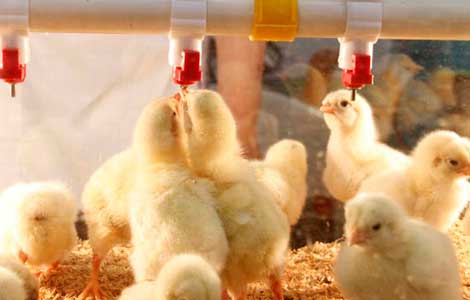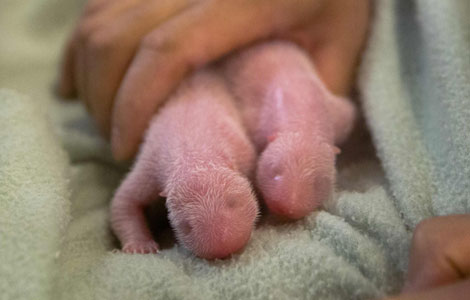Rice safety fears in Thailand
Updated: 2013-07-18 13:59
(www.asianewsnet.net/The Nation)
|
||||||||
A consumer rights watchdog revealed that some packed rice products were tested with a high level of methyl bromide
Health authorities of Thailand are scrambling to slap strict controls on chemical fumigation of rice and to push packers into upgrading their processing to good manufacturing practices (GMP) after reported findings of adulterated rice sapped public confidence in the country's food safety standards.
"Over the next five months, we will be nudging operators into adjusting themselves fast," Public Health Minister Pradit Sintavanarong said yesterday.
The Food and Drug Administration (FDA) will this week ask the Public Health Ministry to issue a regulation limiting the use of three hazardous chemical substances - methyl bromide, hydrogen phosphide and sulfuryl fluoride - in rice products. This would be the first time for Thailand to impose controls on the use of substances in its signature food product.
The FDA will also ask manufacturers to voluntarily comply with the primary GMP, which requires them to ensure the cleanliness of their manufacturing processes to pack rice before launching in the market.
Pradit said that starting on January 1, all bagged rice would be up to GMP standards.
The government was also planning to ban methyl bromide, a pesticide used to kill rice-eating bugs, within two years, he said.
A consumer rights watchdog revealed on Tuesday that some packed rice products were tested with a high level of methyl bromide and some exceeded the United Nations Food and Agriculture Organisation's guidelines.
On the same day, the FDA had already ordered the manufacturer of Ko-Ko packed rice, Siam Grains, to recall its products from shelves after it found that some of its products contained 94.2 milligrams per kilogram of methyl bromide.
FDA deputy secretary-general Srinuan Korrakuchakorn said stricter control of the three chemicals would mean that food products containing the substances above limits would face penalties under the Food Act of 1979.
The regulation would also apply to brown rice, germinated brown rice, and vitamin-enhanced rice.
Last Friday, the FDA collected samples of Ko-Ko packed rice to test for traces of agricultural chemicals and methyl bromide. It got the results on Monday, which showed 94.2 milligrams of methyl bromide per kilogram. That the Foundation for Consumers announced its results while the FDA kept quiet raised the question whether the government was hiding something.
Prime Minister Yingluck Shinawatra said yesterday that different organisations might have different standards when it came to the level of chemicals in packed rice. She said her government was ready to address public concerns.
"If you have any question, we are ready to check and provide an explanation," she said. Asked by reporters if the news would hurt the country's rice exports, she urged everyone not to generalise the issue.
FDA secretary-general Boonchai Somboonsook said yesterday that his agency is inspecting the manufacturer's production process and had instructed it to recall all packed rice products until the investigation is complete.
Dumrong Jirasutas, director-general of the Agriculture Department, said his agency would also collect more Ko-Ko samples produced by Siam Grains to confirm the results of the lab test conducted by the Foundation for Consumers.
Most Viewed
Editor's Picks

|

|

|

|

|

|
Today's Top News
GSK finance head not allowed to leave
Putin puts US ties above Snowden
DPRK demands Panama free seized ship
7.75% growth possible for 2013: IMF
Bomber as rock star?
More use smartphones to access the Internet
Mandela making dramatic progress: daughter
Manila playing for 'sympathy'
US Weekly

|

|













